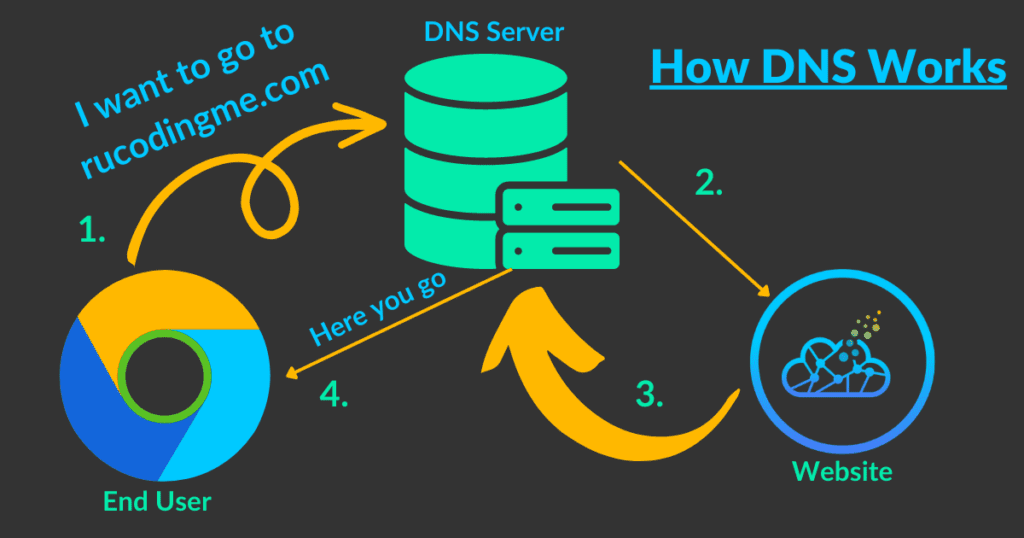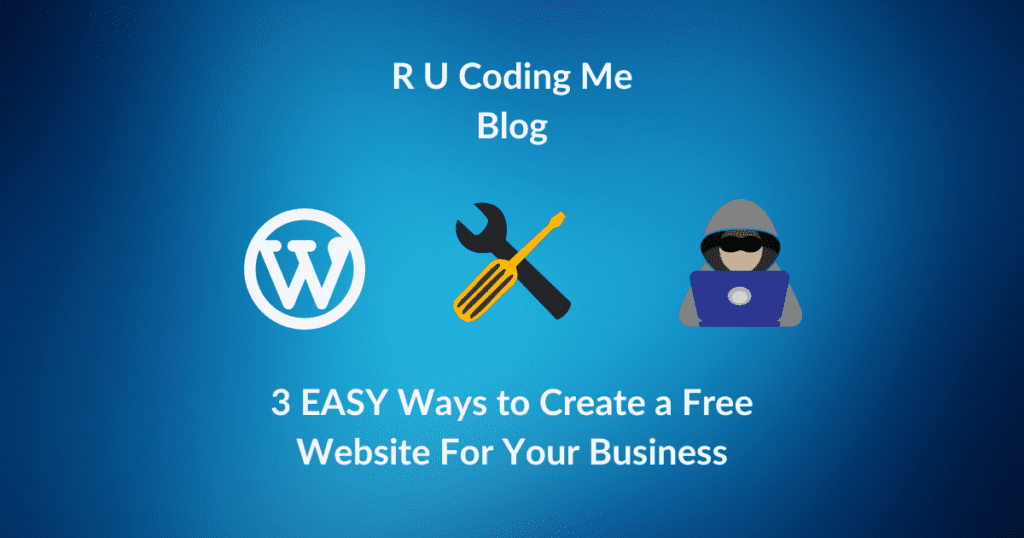The Free Website Notion
We’ve all thought about having a free website for our business, brand or portfolio. One of the most difficult things to do is fork over hundreds of dollars each year for websites people will hardly visit.
Not to mention, how long it will take to set it all up. If you are just starting out, free websites and free website hosting may seem like a great option right now. But keeping your free tier hosting as you grow your website may be impossible. Here’s why:
Websites always have a tradeoff between time spent, performance and cost. Free website options may not be suitable for providing a good experience to thousands of users. Simply put, this is not acceptable if you are scaling a website to promote your brand, business or product.
With that being said, hosting can get REALLY expensive. Spending that much cash when you are just starting out does not make much sense. So if you need something up and don’t have the money for top-notch performance, free website hosting is a great option. In this article, we’ll go over the basics of web hosting. I’ll also go into the different website technologies available to you. After that, I’ve put together 3 options that you can consider if you are just starting out.
Table of Contents
What is Website Hosting?
Website hosting is a 24/7 program that will support your website for users around the world. In order to achieve the 24/7 part, dedicated servers are used to host your website on the web. They need to respond to requests and serve pages as fast as possible. A dedicated IP address is reserved for your website and anyone that accesses that IP address will be served your website.
We need to distinguish websites from the actual hosting itself. Websites consist of HTML (to format the data), CSS (to make it look good) and JavaScript (to add functionality). You can build a website with any tech stack/website builder and it will always return HTML, CSS and JavaScript for the web browser. In every case, you’ll need website hosting to distribute your website to users.

We can add a domain name by purchasing one and creating a record that points to the IP address of our server. There are Domain Name System (or DNS servers) that handle the relationship between your domain name and the IP address of your server.
As long as you have a domain name, you can always point it at the computer hosting your website. This means you can move your website from any computer whether you start out with free hosting or an entirely different web builder technology. For instance, you can start on Wix or Squarespace and migrate over to WordPress or even a custom MERN stack website on a different server.
Now that we know more about website hosting, let’s dive into the different categories of web hosting available.
Platform Specific Hosting
Platform specific hosting, like cPanel or WordPress hosting, will only host a specific software on their server. This means less time setting up Apache or Nginx and more time creating your website. You will almost exclusively use website builders on platform specific hosting. For example, you can create a WordPress website with a free WordPress hosting provider. If your hosting costs are free, then you have a free website done for you!
With that being said, there are some limitations with the “all in” approach. Most notably, hosting in this category can be expensive as you scale up. There are exceptions to this, but the general rule of thumb for hosting costs can range between $5 to $30 a month depending on your functionality, website size and traffic. Some platforms also charge for functionality, like online purchases and video storage.
Creating a free website with platform specific hosting is possible. If you are planning ahead for future traffic, consider your options for scaling.
- Easy setup
- Available with most website builders
- Dedicated performance & security
- Can be expensive
- Limited flexibility
- Limited scaling
General Purpose Hosting
General purpose hosting is essentially someone else’s computer that you have full access to (with certain exceptions). This means, you or your developer(s) can setup a custom solution for your website and scale it in the long run using scalable instances, like Docker, Kubernetes or DigitalOcean droplets. These programs will detect if your website needs more resources and will scale it out horizontally (make more instances) and/or vertically (give more resources to existing instances).
In the long run, hosting your website on this type of system will be the most beneficial. You can scale up or down as needed and maximize your hosting costs. This way, you won’t need to migrate to another hosting provider when your traffic demands more resources.
With your own server, you can also host all sorts of services too. If you are developing a SaaS from scratch, you can spin up a separate server on a different IP address to handle various tasks like database, authentication, etc. that shouldn’t be nested on the same instance.
Since we’re trying to do this for free, you’ll need to find a provider with a generous free tier hosting. Luckily, there are several providers out there that have generous free hosting. Once you deploy your custom coded solution onto the web, you will have successfully created a website for free!
It should also be noted that this approach is not beginner-friendly. Setting up everything will take a fair amount of time and you will need to manually host your own website. This option will also rely on your development skills for both performance and security. However, you can create a free website that will scale over time if you are comfortable with all of this leg work.
- Unlimited website tech options
- Efficient scaling
- Easiest to custom-code features
- Not beginner-friendly
- Time consuming
- Security is up to you
Serverless Hosting
The latest hot-ness in the development community is serverless computing. Instead of paying for a computer that will continuously serve your website, you can use tools like Amazon’s Amplify and Cognito to setup a full website from scratch. When a user requests a page on your site, the serverless function will execute and return with the page. There’s other serverless options too, like Microsoft’s Azure Serverless and Google’s Firebase Serverless.
Generally speaking, serverless hosting is cheaper than dedicated hosting on either general purpose or platform specific hosting -so long as DDoS mitigation and other cybersecurity measures are in place. You have to remember, each request will create a billable instance on your account. Spamming requests to your website could end up costing a lot of money if you do not setup CAPTCHA or a CDN to prevent unnecessary serverless function calls.
There are generous free tiers in this category, making free website hosting with serverless a possibility. Just like with general purpose hosting, you’ll most likely need to build your website from scratch. But, once you get it online, it will be free for quite a while!
With that being said, it is still going to take time to set up your free website on serverless hosting. You will still need to build your website from scratch, but the tools available with serverless hosting make it a little bit easier to get online. Generally speaking, keeping your website secure is also your responsibility.
- Cheaper hosting costs
- Most efficient scaling
- Easiest to custom-code features
- Not beginner-friendly
- Time consuming
- Security is up to you
Free Website Software
In the spirit of hosting a website for free, let’s look at our options for creating a website for free. All we need is a tool, framework or will power to create those HTML, CSS and JavaScript files. Once these are bundled together, we can ship this off to any general purpose or serverless hosting provider.
If you are using a platform specific hosting provider for your free website, you will likely have access to a page builder like WordPress to make your website. In this section, I won’t really mention website page builders, as they are platform specific. Plus, other platform specific services like Wix will have their own proprietary builder bundled with the hosting costs.
The Web Stack
A web stack is an acronym used to describe the underlying software. In the famous words of Jeff from Fireship, “Stacks are used to brag to other developers and sound cool. The coolest sounding acronym will be adopted as the new standard.” In short, you’ll need your website code, a database for your users, someway of hosting everything and someway for your website to talk to all of your resources.
Creating a website for free that will go on general purpose or serverless hosting will require technical knowledge. Depending on how much time and caffeine you are willing to consume, there are a couple of not-so-painful options to make it happen. Here are a few I would recommend:
Node.js

As a developer, I hate JavaScript. It rubbed me the wrong way over 5 years ago, and I haven’t been able to shake this feeling ever since. I haven’t been able to escape it either. JavaScript is just a really powerful tool for building websites.
JavaScript is one of the most versatile web languages and powers every website out there to some degree. Node.js is one of the most popular JavaScript frameworks, which allows you to create modern websites entirely with JavaScript. It’s also open source with an outstanding volunteer development community behind it. Meaning performance and security are usually great.
There are several frontend (the website) and backend (the stuff that makes the website work) options. If you are new to the programming scene, I would just stick with React. If you need to handle users or make requests to a database, consider using Express.js for your API and either Firebase or MongoDB for your database. This combination will create one of the most popular stacks in development: the MERN (or FERN) stack.
There are a gazillion (not really) options to choose from when working with the Node environment. Find one you like and stick with it until you get sucked into learning a new framework because it looks cool.
LAMP Stack
The LAMP stack is an acronym describing the various software that make your website run. Up first, we have Linux which is our operating system (OS). Next, we need Apache to act as our server to run the whole thing. In order to store meaningful info, we use MySQL. Finally, PHP is used by our vanilla website to talk to the database.
LAMP has been around for quite some time and it powers over 33% of the web. The WordPress software suite actually runs off of the LAMP stack! Pretty neat, right?
If you need super custom functionality and you want to have a cool acronym that has been in the business for quite a while, this is the way to do it.
DIY Host A Website Builder

You are probably wondering, “Why can’t I just install WordPress or something on my general purpose hosting?”. You most certainly can! It requires a little bit of elbow grease to figure out how to set it up, but if you have a generous hosting plan, like the Amazon EC2 or a DigitalOcean product. You’ll still have access to a server if you need to do anything fancy. And you can always upgrade or downgrade your instance resources!
Create a Free Website
I’ve created 3 different approaches, and they revolve around the amount of time you have and technical experience.
The Free Website Builder Approach
If you don’t want to spend a whole lot of time setting up a website, using a hosted website builder is your best bet. Once you sign up, you can immediately start working on your website. Security and performance are already handled for the most part, meaning you can work on creating good content. I would recommend Google Sites or WordPress.com (not to be confused with wordpress.org) for this approach. I picked these options because they have a generous free tier, have an outstanding track record and can get the job done well.
With all of this said, you are stuck with the platform. Scaling up will be limited to how Google or WordPress.com offers their premium hosting plans. In my opinion, the editors on both are very limited, so creating a unique feeling experience is hard to do without paying for themes/plugins.
These platforms as they stand are not that complex. But, you can purchase third-party services for your website if you need more features. This kind of defeats the purpose of having it all in one place, so you may need to scale different portions of your full app. It’s not how I would do it, but it is a way to do it in the long run.
If you want a simple website without paying for any bells or whistles you won’t need, this is the approach for you.
Easy Approach Overview
The DIY Free Website Approach
This approach is for you if you like to do things yourself and have the technical expertise (or time to acquire technical expertise). Building a website from the ground up will take a long period of time and will offer some of the best results in the long run.
I would recommend using a service like Google’s Firebase for your project. They have everything you need backed by a very generous free tier plan. It should be noted that the free tier plans will automatically shut down if the limits are met, so consider having a card on file just in case.
You can venture out into the serverless territory if you really want to lower your hosting costs in the long run. Pete Wilcock on dev.to outlined a methodology to host a WordPress installation and serve the cached version online in the Amazon ecosystem. However, setting all of this up may be a little intimidating for newcomers to the website realm.
With any DIY approach, really consider your database schema, security rules and framework choice. Your design choices will make or break the development experience. Hopefully, you can pass this project off to someone else one day. Make sure they can figure out what you did.
I recommend this to people building a SaaS, eCommerce, etc. and don’t want to spend a fortune on plugins or no-code platforms. However, you may need a several months and a case of Red Bull to pull it off.
DIY Overview
* Security and performance will depend on how you code the project. It’s up to you to follow best practices for the best page speeds and security.
The Self-Hosted Free Website Builder Approach
I recommend this option for folks with some technical experience that don’t want to spend months coding a new website. It will still take some time to get it setup, but you won’t need to worry about any more coding once you can access the WP admin panel.
This is just like WordPress.com, except you get to control your own server. If you want to add more stuff to the server (like SaaS, podcast hosting, etc.), you can create another instance or jam it all onto one large one -depending on how you want to scale your online presence.
If you want room to grow and the option to host your other outlets online through the same provider, I would recommend this option for you. If bandwidth becomes an issue later on, setting up a Content Delivery Network (CDN) can help mitigate long load times.
Middle of the Road Overview
Can You Build A Website For Free In 2023?
Yes, even with a free website builder too! There are a lot of options to create a website for your brand, business, product, portfolio or whatever else you have going on.
Tech wiz or not, I recommend sticking with an option you know how to work and will scale with you in the long run. Some of my web design clients started out on a website platform they hated and wanted to transfer over to something else. Transferring legacy content over to a new website platform takes a lot of time and money to do.
FAQ
Can I make my website for free?
Yes. There are a few options to choose from. However, you should consider the overall goal of your website to avoid migrating your site later down the road. It’s not the end of the world if you need to migrate, it is just a pain to do so.
Are Wix websites still free?
According to the pricing page on Wix, Wix websites are not free. As of writing this article, the lowest plan is $16/month.
However, it appears you can create a limited website for free according to their support page. Once you create an account, you will receive access to the website builder.
What is the best free site to make a website?
This is subjective, but I have found Google Sites to be a great tool for combining both a website builder environment with some custom coding functionality with the embed tools. Scaling a Google Sites website will depend on the available memory you have on your Google account and desired features you would like to integrate on your website.
Are business websites free?
It depends on your needs. For simple websites, you can host with Google Sites, WordPress.com or some of the many free website builder options. However, you may need to pay for hosting if you have a large website, increased website traffic or complex features that do not fit onto a free hosting option.
Is there a free Google website?
Yes, Google Sites is free. You need a Google account to get started. You do not need a domain name to publish the site, however, setting up a DNS record with your domain name is not that tricky if/when you want to add a domain name.

Founder and CEO of R U Coding Me LLC. Jacob obtained his Bachelor’s of Computer Science at the University of Central Florida. He likes to go to the gym and teach people about technology.



